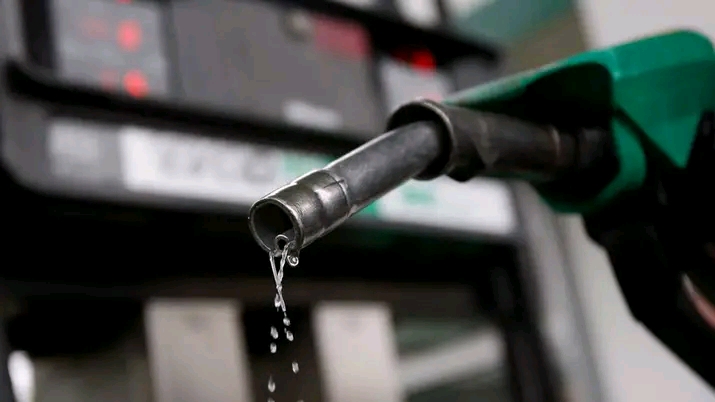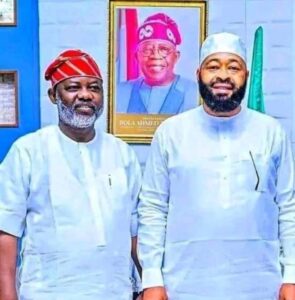
By Garba Adamu Gwangwangwan
The removal of subsidies is refers to the government’s decision to eliminate or reduce the subsidies provided on certain goods or services, particularly petroleum products in Nigeria .This policy has been a subject of debate and controversy in Nigeria for many years.
Historically, the Nigerian government has subsidized the prices of petroleum products to make them more affordable for the general population. This was done because the country is seventh among the major oil producer and has significant oil reserves, but also because it aimed to mitigate the impact of price fluctuations on the cost of living for Nigerians.
However, the subsidy program has faced several challenges. One of the main issues is that it has become a significant burden on the Nigerian economy. The cost of subsidizing petroleum products has been a major drain on government finances, leading to significant fiscal deficits and a strain on the country’s budget. Apparently , the subsidy program has been plagued by corruption and inefficiency, with a substantial portion of the funds intended for subsidy payments being diverted or mismanaged by previous administration.
Over the years, there have been calls for subsidy removal as a means to address these challenges. Proponents argue that removing subsidies would allow the government to redirect the funds saved towards critical infrastructure development, education, healthcare, and other social programs. They argue that it would also promote more efficient use of resources and encourage private sector investment in the oil sector.
Opponents of subsidy removal, however, raise concerns about the potential negative impact on the population, particularly the poor and vulnerable segments of society. They argue that removing subsidies would lead to a significant increase in the prices of petroleum products, which would have a cascading effect on the cost of transportation, food, and other essential goods and services. This, in turn, could exacerbate poverty and inequality in the country.
The Nigerian government has made attempts to remove or reduce subsidies in the past, but these efforts have often been met with public outcry and protests. The issue remains highly contentious, and any decision regarding subsidy removal is likely to be met with both support and opposition.
The historical antecedent of subsidy removal on petrol in Nigeria is marked by a series of policy shifts, attempts, and controversies. The Nigerian government has implemented and reversed subsidy removal multiple times over the years.
The nomenclature of subsidy removal in Nigeria was first Introduction in the year 1988. The government of Nigerian introduced a subsidy on petroleum products to stabilize fuel prices and make them affordable for the general population. This was in response to protests against price increases.
In 1999 the deeregulation Attempt under President Olusegun Obasanjo to deregulate the downstream sector of the oil industry, which included removing fuel subsidies. However, due to public resistance and protests, the plan was abandoned.
The story was not different during President Goodluck Jonathan’s administration In January 2012, announced a partial removal of fuel subsidies, leading to a sharp increase in fuel prices. This move sparked widespread protests across the country, known as the “Occupy Nigeria” protests. Eventually, due to public pressure, the government bow down to pressure reinstated the subsidies, though at a reduced level.
Moreover, the monster subsidy removal on petrol In May 2016, under President Muhammadu Buhari’s administration, the government announced the complete removal of fuel subsidies. This led to a significant increase in fuel prices, which resulted in nationwide protests and strikes. The government argued that removing the subsidy was necessary to address corruption, inefficiency, and the drain on public finances. However, due to the public backlash, the decision was reversed, and subsidies were partially reinstated.
The issue of subsidy removal has remained a topic of debate and discussion in Nigeria. While no full removal has taken place since 2016, there have been ongoing discussions and considerations by successive governments regarding subsidy reforms and finding alternative solutions to address the fiscal challenges associated with the subsidy program.
Consequently, the newly sworn in administration in Nigeria under the leadership of President Bola Ahmad Tinubu will squarely address the issue as he rightly said at eagle square while delivering his inauguration speech that said, “subsidy is gone. Subsidy
can no longer justify its ever increasing cost in wake of dying
resource”.
Only history can juxtapose between the latter and former as Nigerian Labour Congress and it’s affiliated union have warm up to begin industrial actions comes Wednesday 8th June 2023 and series of dialog between government and the union no end in sight to arrive at the compromise stand.
It’s important to note that the subsidy removal on petrol in Nigeria has been a highly controversial and politically sensitive topic. The debate surrounding it is multifaceted, involving economic considerations, social implications, and political factors. The decision to remove or retain subsidies on petrol in Nigeria has often been influenced by a range of factors, including public sentiment, international oil prices, government finances, and the overall stability of the country.
Garba Adamu Gwangwangwan wrote from Bauchi state, adamugarba0079@gmail.com


